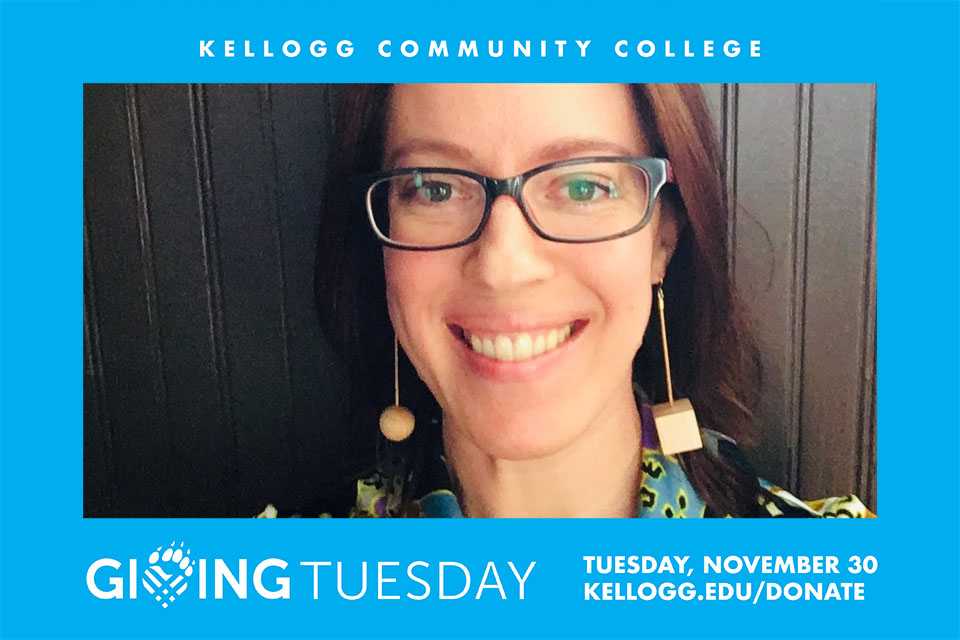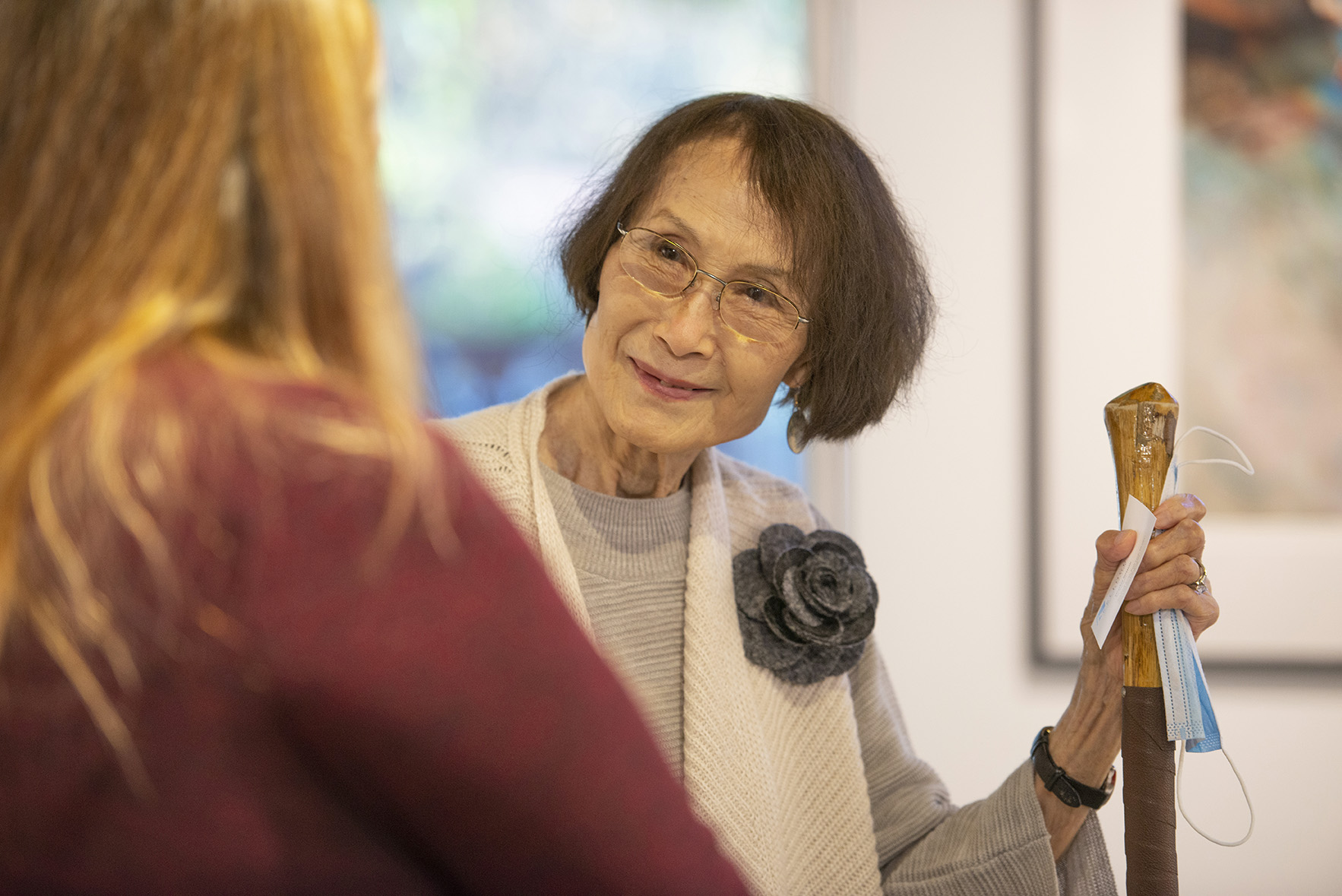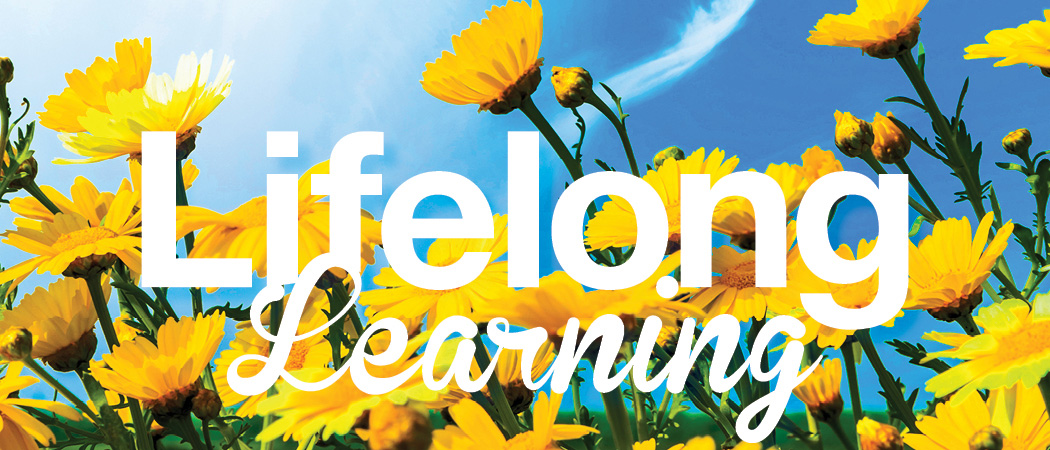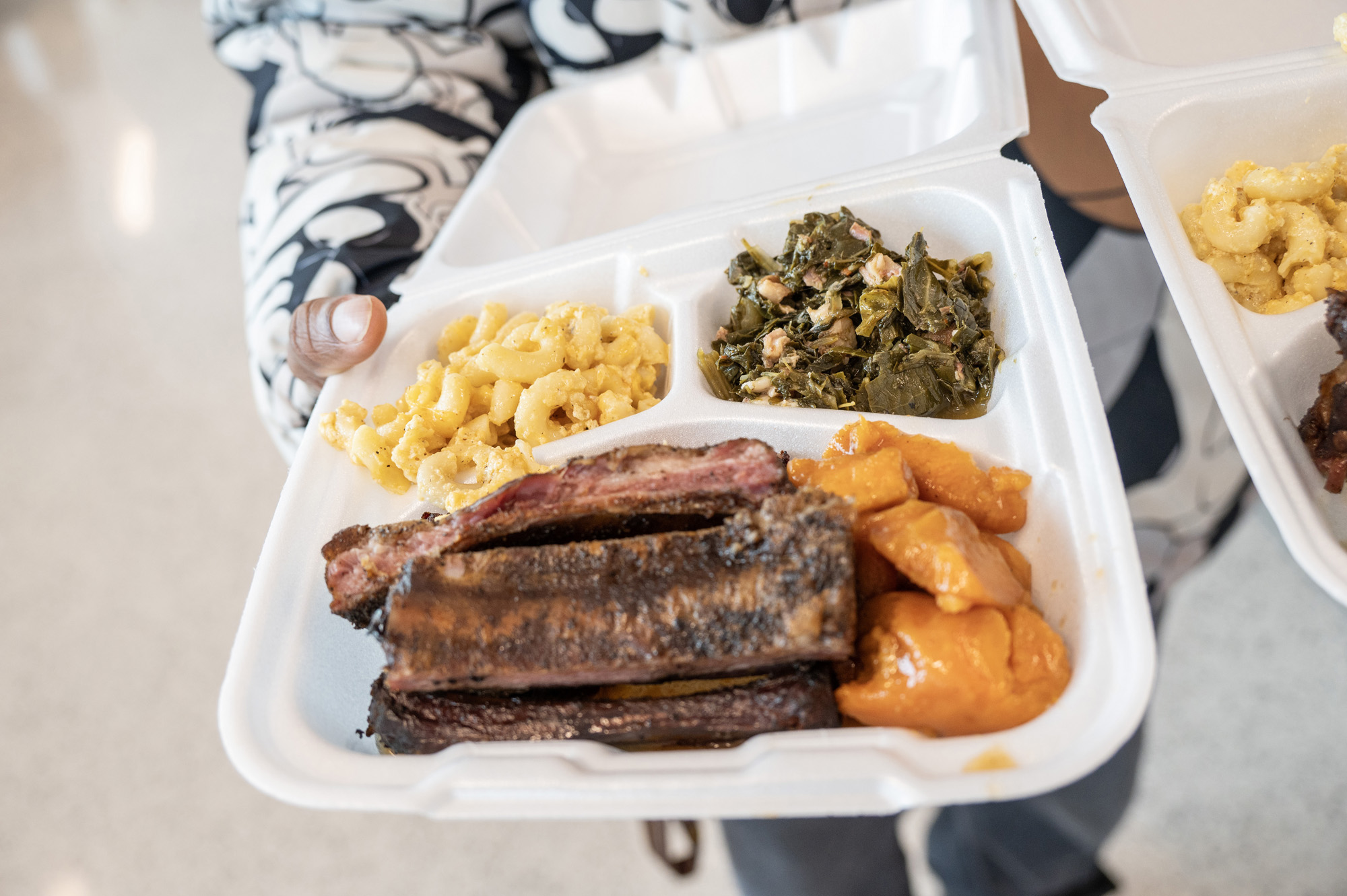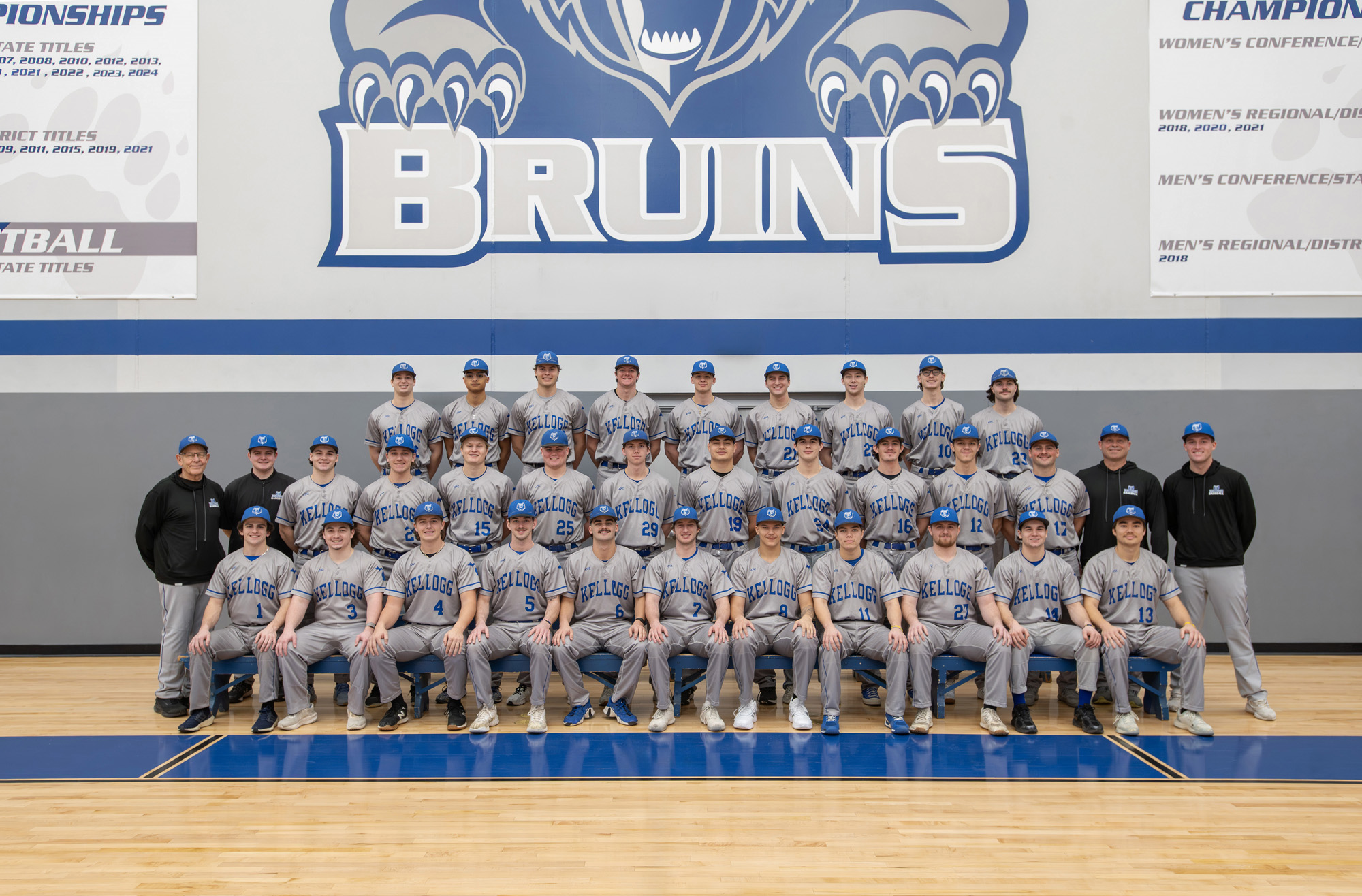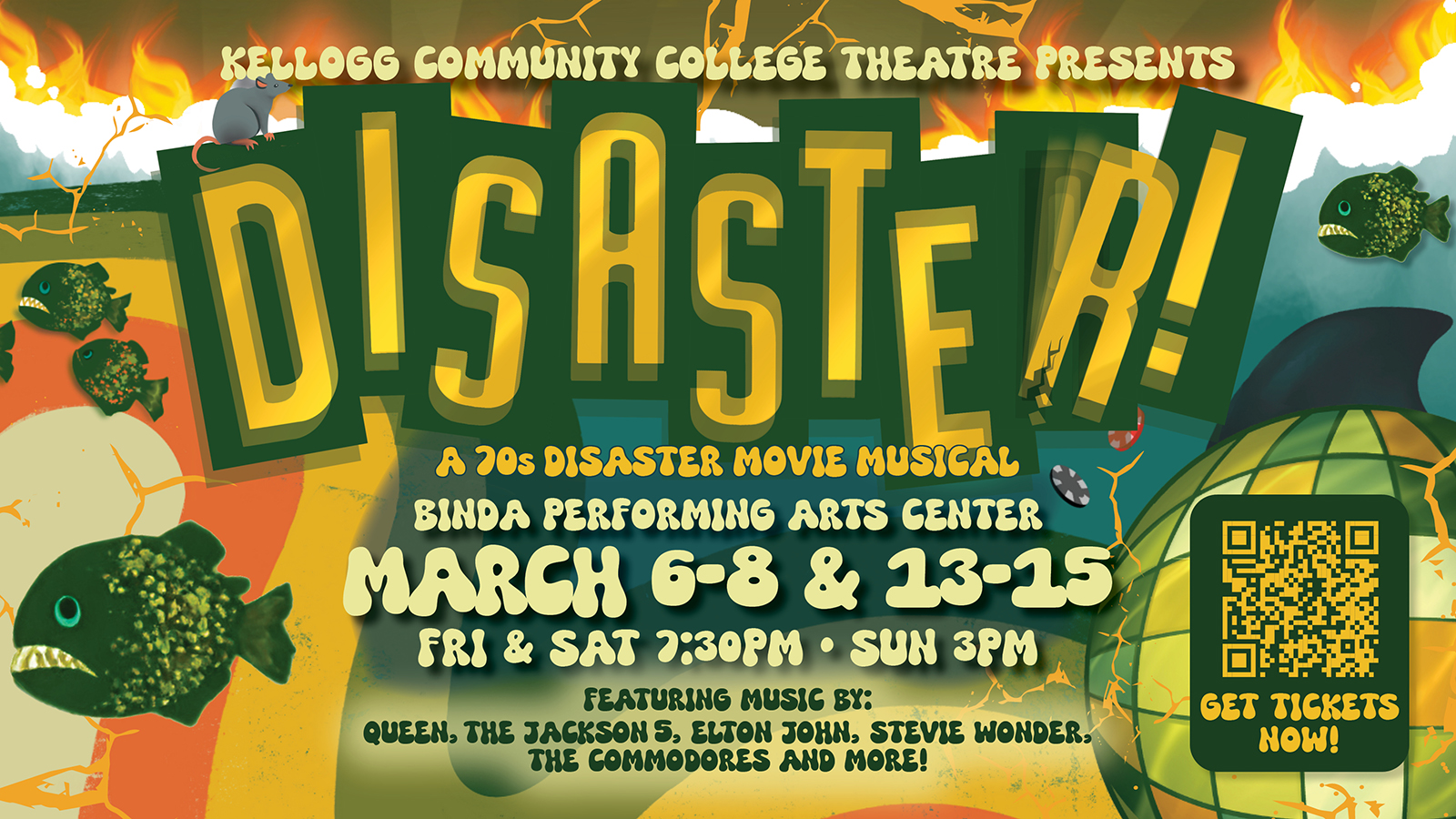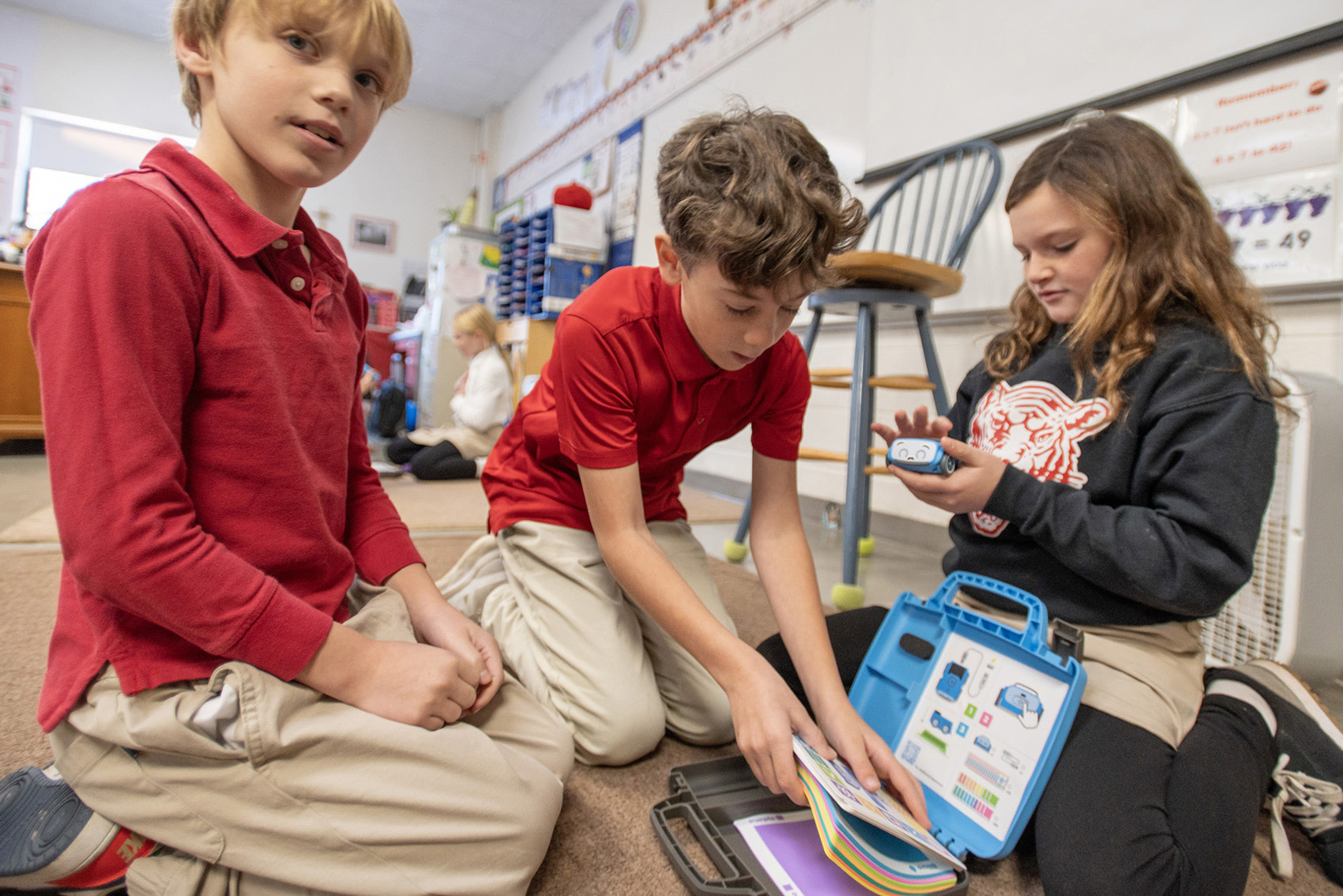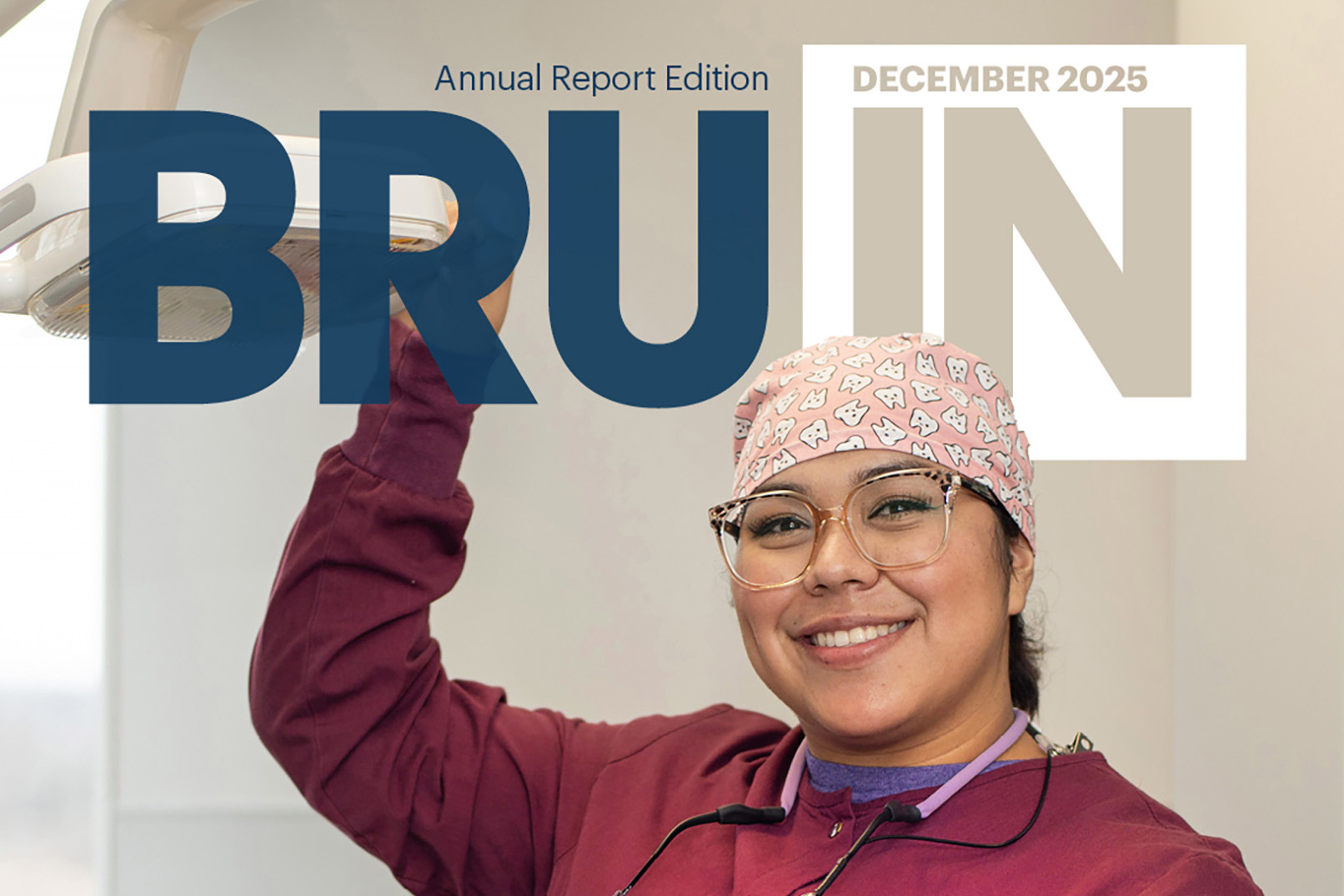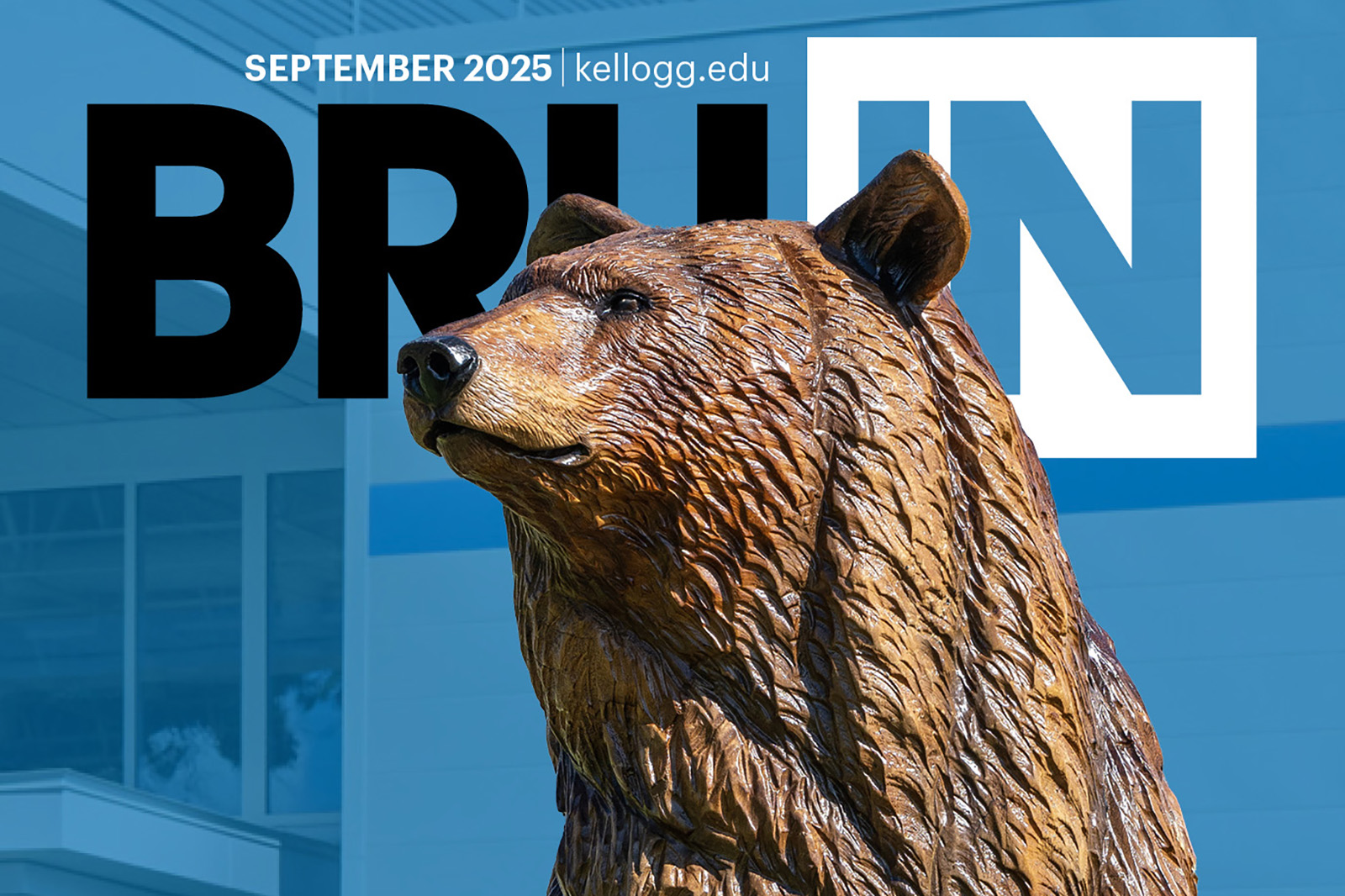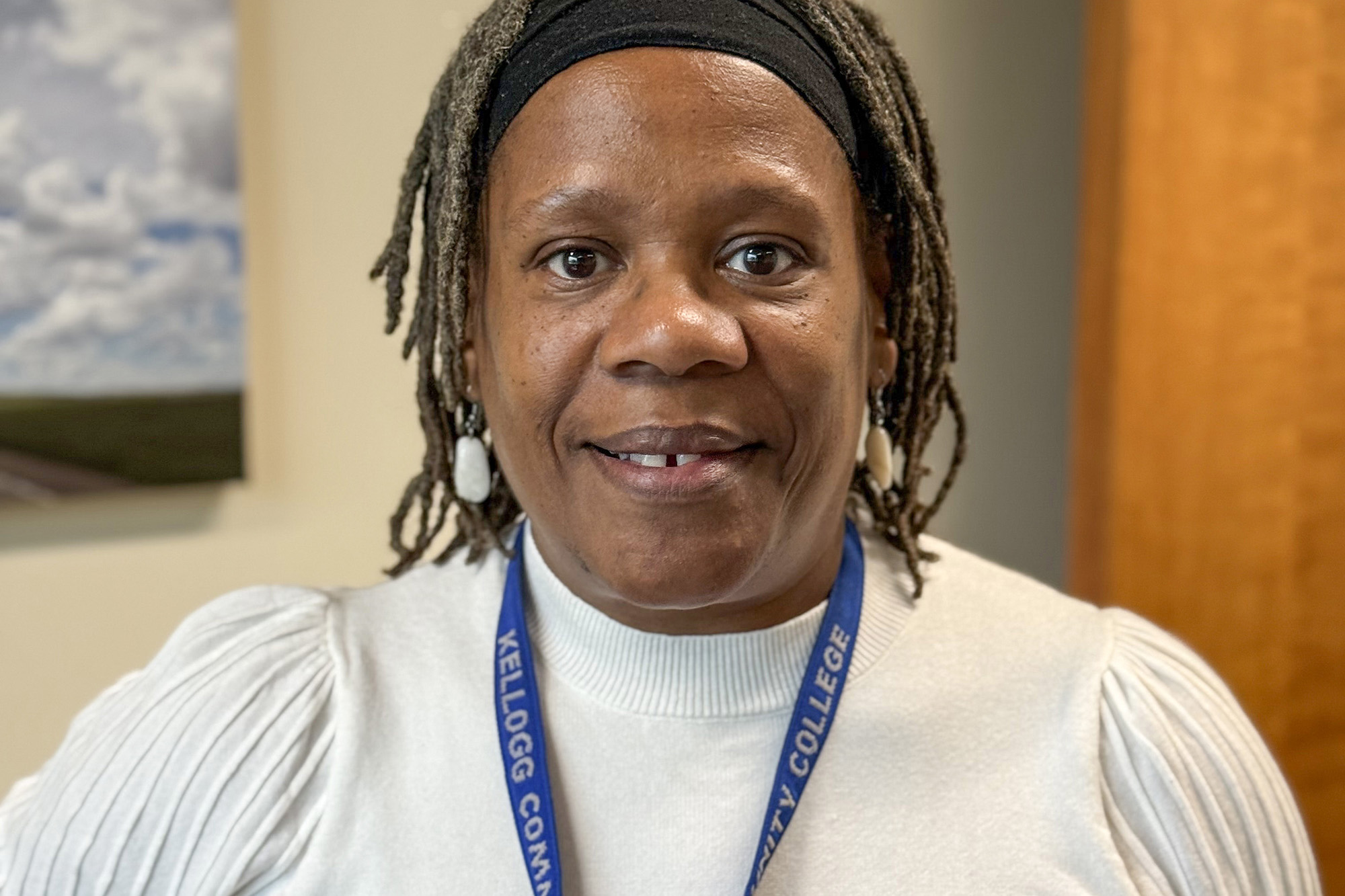Kellogg Community College will celebrate Giving Tuesday Nov. 30 with a donation drive to help address student food insecurity on campus. Below is a Q&A post focused on food insecurity and food insecurity initiatives at KCC from Sociology professor Megan Ward, who’s volunteered at several Fresh Food Distribution events on campus to distribute free fresh food to students and community members in need.
What Fresh Food Distribution events have you volunteer for, and what did you do during the events?
I volunteered at all of the Fresh Food Distribution events, except the one in August I believe. In this capacity, I assisted in distributing food to those in need, helped transfer leftover food to the Food Bank and/or other similar organizations in the community, and discussed observations and potential changes for future sessions with fellow volunteers.
Why did you decide to volunteer to support food insecurity programming at KCC?
I am very passionate about helping those in need, and have a particular interest in food security/insecurity.
What is something you learned through volunteering at KCC’s Fresh Food Distribution events?
It has been very eye-opening to go from discussions about food insecurity during our meetings (Food Insecurity Task Force) to seeing and interacting with the recipients of the FFD, including students, staff and community members. At some distributions, the recipients are largely community members, and this visually highlights the magnitude of food insecurity in our community. When this is tied back to the larger picture, it also highlights needs in other areas that are related to income and wealth, and how this is stratified in our society (the haves and the have nots), as well as the work of other applicable community organizations when it comes to social class and low-income or poverty levels.
What was your favorite part about volunteering at the events?
My favorite part is distributing the food and chatting to recipients as well as other volunteers. I also very much enjoy observing these events and collaborating with colleagues about lessons that have been learned and changes that may need to be made to improve this distribution.
What impact do you hope the Fresh Food Distribution events and Bruin Basket initiative can have on the greater KCC community?
I really hope that this initiative, in conjunction with our other initiatives (such as our Bruin Baskets) has helped to raise more awareness and education about food insecurity among college students as well as our surrounding communities, and that it has helped to remove stigma that is attached to food insecurity, as well as poverty in general. In addition, I hope that this also sheds light on other organizations in the area that have food distributions and/or food pantries and the reasons as to why this is so vital to our service areas. Here we can look at the relationship between social class and neighborhoods, including the presence, or lack of, grocery stores and the type of food that is available (i.e., food deserts), and what is being done to address this as well as accompanying challenges.
What is something you think people should know about food insecurity or KCC’s Food Insecurity Task Force initiatives on campus?
I believe that people should first of all learn about our different initiatives, who we help and why, and how they can help if they so wish (volunteer, donate food/money). Although the pandemic may have highlighted inequities in our society, some people may be surprised that college students in particular are not immune to food insecurity and that this is a nationwide problem, as is food insecurity (and other insecurities such as transportation and housing) in the general population. This suggests that more open conversations and awareness may need to take place, not only in schools but in communities as well, maybe coming from different local organizations and government.
Giving Tuesday is Nov. 30. Click here for more information about Giving Tuesday at KCC or visit kellogg.edu/donate to donate today.


